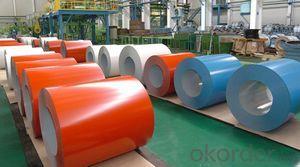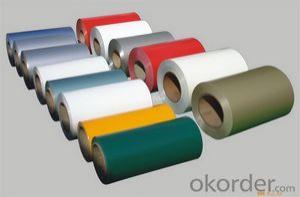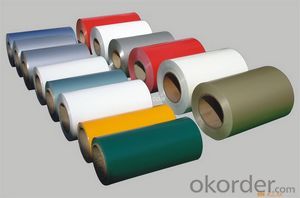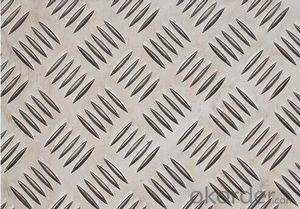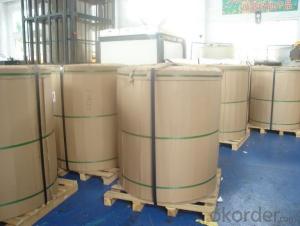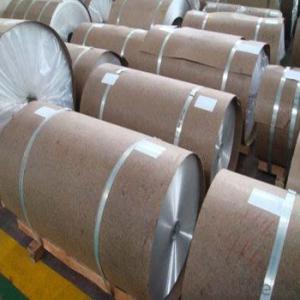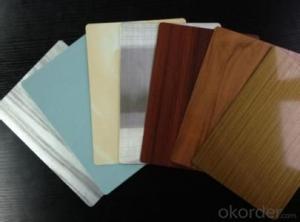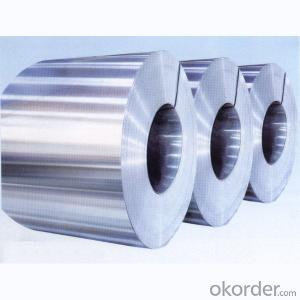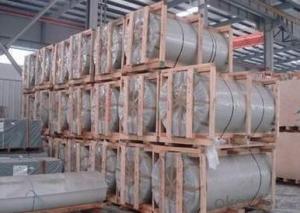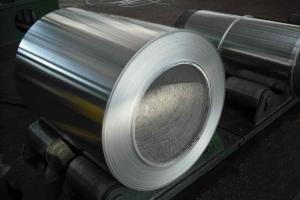1060 AA 5052 Coated Aluminum Coils for Sale
- Loading Port:
- China Main Port
- Payment Terms:
- TT OR LC
- Min Order Qty:
- -
- Supply Capability:
- -
OKorder Service Pledge
Quality Product, Order Online Tracking, Timely Delivery
OKorder Financial Service
Credit Rating, Credit Services, Credit Purchasing
You Might Also Like
supply Mill-finished / coated aluminum plate/sheet/ coil:
Alloy: AA1050,1060,1100,1200,2024,3003,3304,3005,3015,5052,5086,5754,5083,6061,7050,7475,8011, etc
Temper: O, H14/16/18/22/24/32/ H112/H321/T6,T851,T7451,T7351, etc
Thickness: 0.02mm—20mm
Width: 100mm—2000mm (Can be slitted)
Notice: PE coating / PVDF coating / Embossment can be done if required.
- Q: Explain the distinctions among various welding equipment used specifically for joining aluminum coils.
- <p>Different types of welding equipment for aluminum coils include Gas Tungsten Arc Welding (GTAW), Gas Metal Arc Welding (GMAW), and Resistance Welding (RW). GTAW, also known as TIG welding, uses a non-consumable tungsten electrode and produces high-quality welds with minimal distortion. GMAW, or MIG welding, uses a continuous wire feed as the electrode and is faster but may not be as precise. Resistance Welding involves using electrical current to heat the metals at the joint, which is quick and efficient but not suitable for all aluminum alloys. Each method has its advantages and is chosen based on factors like weld quality, speed, and the specific aluminum alloy being welded.</p>
- Q: How are aluminum coils coated for color matching and aesthetic purposes?
- The process of coil coating is commonly used to coat aluminum coils for color matching and aesthetic purposes. It is a continuous and highly automated process where a layer of paint or coating is applied onto the surface of the aluminum coil. To start the coil coating process, the aluminum coil is thoroughly cleaned to remove dirt, grease, and oxidation. This is done using chemical cleaning agents and mechanical scrubbing methods to ensure a clean and smooth surface. Once the cleaning process is complete, a primer is applied to the aluminum coil. The primer acts as a bonding agent, improving the adhesion of the subsequent layers of paint or coating. It also helps to prevent corrosion on the aluminum surface. After the primer is applied, the aluminum coil undergoes a series of rollers where the desired color coating is applied. This can be done through various methods such as coil coating, spray coating, or powder coating. Coil coating is the most common method, involving the application of a liquid paint or coating onto the metal coil surface. The coating is then cured or dried using heat to ensure proper adhesion and durability. In order to achieve color matching and aesthetic purposes, the paint or coating used is often customized to specific color palettes or customer requirements. This customization is achieved by using a wide range of pigments and additives that alter the color, texture, and gloss level of the coating. Furthermore, specialized coatings can be applied to aluminum coils to enhance their aesthetic properties. For example, there are coatings available that give the appearance of natural wood or stone, providing a more visually appealing finish. Overall, the process of coating aluminum coils for color matching and aesthetic purposes involves thorough cleaning, priming, and the application of customized paint or coatings. This ensures that the aluminum coils meet the desired aesthetics while also providing durability and protection against corrosion.
- Q: Are aluminum coils suitable for architectural cladding applications?
- Yes, aluminum coils are suitable for architectural cladding applications. Aluminum is lightweight, durable, and corrosion-resistant, making it an ideal material for cladding buildings. It can be easily formed into various shapes and sizes, allowing for creative and unique designs. Additionally, aluminum coils offer excellent weather resistance, low maintenance requirements, and a wide range of color options, making them a popular choice in architectural cladding projects.
- Q: Is it possible to use aluminum coils as a material for insulation?
- <p>Aluminum coils are not typically used for insulation materials. Aluminum is a good conductor of heat and electricity, which makes it unsuitable for insulation purposes where the goal is to prevent the flow of heat or electricity. Insulation materials are usually poor conductors of heat, such as fiberglass, mineral wool, or plastic foams, which help to retain heat within a space or prevent the loss of heat to the environment. Aluminum coils are more commonly used in applications where heat transfer is desired, such as in heat exchangers or electrical wiring.</p>
- Q: I know when you stick weld aluminum you're more brazing than actually welding but i was just wondering about this, i want some electrodes just in case i need a temporary repair. Also what Amperage should i run it at,and what polarity?? my friend told me to run hotter than usual but hes only 14, and I dont know how reliable he is. Im 14 by the way also and have been welding for two years now and im always out running around the ranch doing small repairs. thanks ahead of time!
- you okorder /... heres some stuff you can buy online
- Q: Are aluminum coils resistant to chemicals?
- Yes, aluminum coils are generally resistant to chemicals. Aluminum has a natural oxide layer that forms on its surface, which provides a protective barrier against many chemicals. This oxide layer helps to prevent corrosion and degradation of the aluminum coils when exposed to different substances. However, it is important to note that some chemicals can still have an adverse effect on aluminum, particularly strong acids or alkalis. In such cases, additional protective coatings or treatments may be necessary to enhance the chemical resistance of the aluminum coils.
- Q: if air goes throught a lot of tiny aluminum will cause cooling? Why am i asking this because when you see inside the computer desktop has heatsink fan, and some of the heatsink are made by aluminum.
- The aluminium heatsink absorbs the heat from the component it is connected to, the heatsink will have a very large surface area-to-volume and the heat will pass into the air due to this. so you can see its not actualy the metal that causes cooling, the metal just transfers the heat to the air where it will be taken away by fans etc.
- Q: What specific tools are necessary for handling and working with aluminum coils?
- <p>When working with aluminum coils, there are several special tools that may be required. These include cutting tools designed for metal, such as metal shears or a bandsaw with a metal cutting blade, to cut the coils without damaging the material. A coil car or lifting equipment is necessary for safely moving and positioning heavy coils. Additionally, a coil leveler may be needed to straighten and flatten the coils for processing. Safety equipment such as gloves and goggles is also essential to protect against sharp edges and flying debris. It's important to use tools that are suitable for the specific aluminum alloy and thickness to ensure efficient and safe handling.</p>
- Q: What is the typical density of aluminum coils?
- The density of aluminum coils can differ depending on the particular alloy and manufacturing method employed. Generally, aluminum coils have a density of approximately 2.7 g/cm³. This value is slightly lower than pure aluminum, which has a density of 2.7-2.8 g/cm³. It should be noted that the density of aluminum coils can also be affected by factors such as coil thickness and any surface coatings or treatments applied.
- Q: How do aluminum coils contribute to reduced carbon emissions?
- Aluminum coils contribute to reduced carbon emissions in several ways. Firstly, aluminum is a lightweight material compared to other metals, such as steel, which means that less energy is required to transport and handle aluminum coils. This reduced weight results in lower fuel consumption during transportation, ultimately leading to decreased carbon emissions. Additionally, the production of aluminum coils involves significantly less energy compared to other metals. Aluminum is known for its high recyclability, as it can be melted down and reused without losing its original properties. This recycling process requires only a fraction of the energy needed to produce aluminum from raw materials, resulting in reduced greenhouse gas emissions. Furthermore, aluminum coils have excellent thermal conductivity, which allows for improved energy efficiency in various applications. For instance, aluminum coils are commonly used in HVAC systems, where they help transfer heat more effectively, reducing the energy required for heating or cooling. This improved energy efficiency directly translates into lower carbon emissions by reducing the energy demand from power plants. Overall, aluminum coils contribute to reduced carbon emissions through their lightweight nature, recyclability, and improved energy efficiency. By using aluminum coils in various industries, we can minimize the environmental impact, conserve energy resources, and mitigate climate change.
Send your message to us
1060 AA 5052 Coated Aluminum Coils for Sale
- Loading Port:
- China Main Port
- Payment Terms:
- TT OR LC
- Min Order Qty:
- -
- Supply Capability:
- -
OKorder Service Pledge
Quality Product, Order Online Tracking, Timely Delivery
OKorder Financial Service
Credit Rating, Credit Services, Credit Purchasing
Similar products
Hot products
Hot Searches
Related keywords
